Search the Special Collections and Archives Portal
Search Results
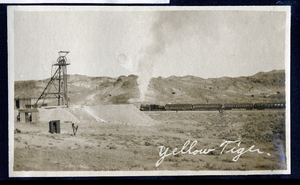
Photograph of a train passing the Yellow Tiger Mine, Goldfield (Nev.), 1900-1920
Date
1900 to 1920
Archival Collection
Description
Caption: Yellow Tiger
Image
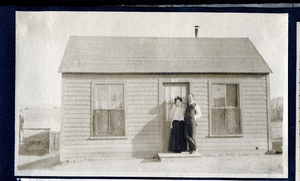
Photograph of the Fenwicks at home, Goldfield (Nev.), 1900-1920
Date
1900 to 1920
Archival Collection
Description
Photograph of the Fenwicks at home, Goldfield (Nev.), 1900-1920
Image
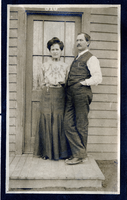
Photograph of John and Myrta Fenwick in a doorway, Goldfield (Nev.), 1900-1920
Date
1900 to 1920
Archival Collection
Description
Photograph of John and Myrta Fenwick in a doorway, Goldfield (Nev.), 1900-1920
Image
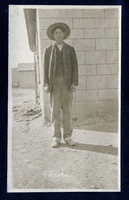
Photograph of a man standing outside of a brick building, Goldfield (Nev.), 1900-1920
Date
1900 to 1920
Archival Collection
Description
Man wearing suit and hat standing outside by the wall of a brick building
Caption: Texas
Caption: Texas
Image
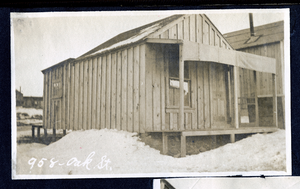
Photograph of a house at 958 Oak Street, Goldfield (Nev.), 1900-1920
Date
1900 to 1920
Archival Collection
Description
Caption: 958 Oak St.
Image
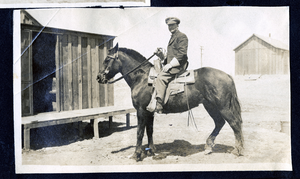
Photograph of a portrait of a man on horseback, Goldfield (Nev.), 1900-1920
Date
1900 to 1920
Archival Collection
Description
Photograph of a portrait of a man on horseback, Goldfield (Nev.), 1900-1920
Image
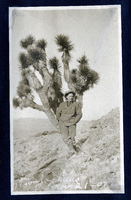
Photograph of a man standing in front of a Joshua tree, Goldfield (Nev.), November 21, 1907
Date
1907-11-21
Archival Collection
Description
Caption: Two Joshuas Nov 21-07
Image
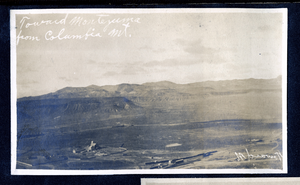
Photograph of the Montezuma mine, Goldfield (Nev.), 1900-1920
Date
1900 to 1920
Archival Collection
Description
Caption: Toward Montezuma from Columbia Mt.
Image
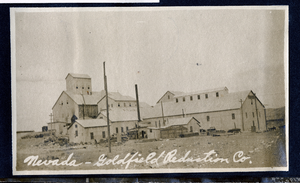
Photograph of the Nevada-Goldfield Mill operations, Goldfield (Nev.), 1900-1920
Date
1900 to 1920
Archival Collection
Description
Caption: Nevada-Goldfield Reduction Co.
Image

Photograph of the Daisy Mine and camp, 1900-1920
Date
1900 to 1920
Archival Collection
Description
Caption: Daisy-Diamondfield
Image
Pagination
Refine my results
Content Type
Creator or Contributor
Subject
Archival Collection
Digital Project
Resource Type
Year
Material Type
Place
Language
Records Classification
